Paul Finch - Stronghold
Здесь есть возможность читать онлайн «Paul Finch - Stronghold» весь текст электронной книги совершенно бесплатно (целиком полную версию без сокращений). В некоторых случаях можно слушать аудио, скачать через торрент в формате fb2 и присутствует краткое содержание. Жанр: Ужасы и Мистика, на английском языке. Описание произведения, (предисловие) а так же отзывы посетителей доступны на портале библиотеки ЛибКат.
- Название:Stronghold
- Автор:
- Жанр:
- Год:неизвестен
- ISBN:нет данных
- Рейтинг книги:3 / 5. Голосов: 1
-
Избранное:Добавить в избранное
- Отзывы:
-
Ваша оценка:
- 60
- 1
- 2
- 3
- 4
- 5
Stronghold: краткое содержание, описание и аннотация
Предлагаем к чтению аннотацию, описание, краткое содержание или предисловие (зависит от того, что написал сам автор книги «Stronghold»). Если вы не нашли необходимую информацию о книге — напишите в комментариях, мы постараемся отыскать её.
Stronghold — читать онлайн бесплатно полную книгу (весь текст) целиком
Ниже представлен текст книги, разбитый по страницам. Система сохранения места последней прочитанной страницы, позволяет с удобством читать онлайн бесплатно книгу «Stronghold», без необходимости каждый раз заново искать на чём Вы остановились. Поставьте закладку, и сможете в любой момент перейти на страницу, на которой закончили чтение.
Интервал:
Закладка:
Behind this burning vanguard, more Welsh fighters were advancing. Some attempted to circle the conflagration, but again they stumbled into the river and were swept away. Others, at long last, began to display a notion of self-preservation. They halted rather than blundered headlong into the flames and, as Ulbert had predicted, were bottled up along the berm, cramming together for hundreds of yards. Naptha was sluiced onto them all along the line and lit torches were applied, creating multiple downpours of liquid fire. There was nowhere for the Welsh to run to, even if they'd been minded to. Many of them — too many to be feasible — stood blazing together in grotesque clusters, melting into each other like human-shaped candles. The stench was intolerable, the odour of decay mingling not just with the reek of ruptured guts and splintered bones, but with charring flesh and bubbling human fat. Yet only slowly did they succumb, without panic or hysteria, collapsing one by one. Thick smoke now engulfed the battlements, though it was more grease and soot than vapour. The defenders' gorge rose; cloaks were drawn across faces. Walter Margas, his blue and white chevrons stained yellow with vomit, staggered around like a dying man.
When the smog cleared — and it seemed to take an age — all that remained on the path below was a mass of black, sticky carcasses, twisted and coagulated together, yet, unbelievably, bodies still twitched, still attempted to get back to their feet. Unable to see this latter detail, those on the Constable's Tower cheered. They were watching the bluff, where the remainder of the Welsh host was finally holding back from the bridge, perhaps having realised that further attempts to circumnavigate the castle via the berm were futile.
On the curtain-wall there was less euphoria.
"Two hundred," a man-at-arms stammered. "We must have accounted for two-hundred there!"
"And if you times that by how often we killed them, the number should be closer to two thousand," Ranulf replied.
"This is the work of devils," Gurt said, leaning exhaustedly. Dirty sweat dripped from his face. Ulbert too was pale and sweaty, his red and blue tabard blackened with cinders.
"Just be warned," he said. "This isn't over."
"But if that's the best they can do," Gurt insisted, "try to march around the outside of the castle — which must be over a mile — we can attack them with fire all the way. We'll incinerate the lot of them."
" Is that the best they can do?" Ranulf asked. "Or were they just probing? Testing our defences?"
"The latter," Ulbert said. "Now they know that to reach the main entrance, they must first smash the curtain-wall."
"And how will they do that, sir knight?" Craon Culai wondered. He was a tall, lean fellow with a pinched, sneering visage. Captain of the royal men-at-arms, but originally low born, he'd long resented the air of authority assumed by the equestrian class. He lifted off his helmet, yanked back his coif and mopped the sweat from his hair. "Do they command thunderbolts as well?"
He was answered by a deafening concussion on the exact point of the battlements where he stood. Three full crenels and a huge chunk of the upper wall exploded with the force, shards flying in all directions, slashing the faces of everyone nearby. Culai and the three men-at-arms standing with him were thrown down into the bailey, cart-wheeling through the scaffolding, hitting every joist, so that they were torn and broken long before they struck the ground.
It was a dizzying moment.
Ulbert wafted his way through the dust to the parapet and peered across the Tefeidiad. On its far shore, three colossal siege-engines had been assembled, each one placed about thirty yards from the next. Diminutive figures milled around them.
"God-Christ," he said under his breath. "God-Christ in Heaven! The earl's mangonels!"
Ranulf and Gurt joined him, wiping the dust and blood from their eyes. There was no mistaking the great mechanical hammers by which their overlord had shattered so many of his enemies' gates and ramparts. The central one of the three, War Wolf, had already ejected its first missile. The other two, God's Maul and Giant's Fist, were in the process.
Their mighty arms swung up simultaneously, driven by immense torsional pressure; the instant they struck their padded crossbeams, massive objects, which looked like cemented sections of stonework, were flung forth. All of the defenders saw them coming, but the projectiles barrelled through the air with such velocity that it was difficult to react in time.
Ulbert was the first. " EVERYBODY DOWN!"
On the roof of the Constable's Tower, Corotocus and his men moved en masse to the south-facing parapet, drawn by that thunderous first collision. They were just in time to see the next two payloads tear through upper portions of the curtain-wall, fountains of rubble and timber erupting from each impact, a dozen shattered corpses spinning fifty feet down into the bailey. One missile had been driven with such force that it continued across the bailey until it struck the wall encircling the Inner Fort. Huge fissures branched away from its point of contact.
The earl's expression paled, but as much with anger as fear. Blood trickled from the corner of his mouth as his teeth sank through his bottom lip.
"Good… good Lord," du Guesculin said. "They've raided the artillery train. Taken possession of our catapults."
"And how are they operating them, this peasant rabble?" the earl retorted. "Have they engineers? Can they read Latin, Greek… none of my diagrams and manuals are written in Cymraeg, as far as I'm aware."
Had he been on the river's south shore, Earl Corotocus would have had his answer. Already, the three great machines were being primed again. The hard labour — the cranking on the windlass, the retraction of the throwing-arm — was provided by mindless automatons, some in shrouds, others naked, many in rags coated with gore and grave-dirt. They moved jerkily, yet with precision, speed, and unnatural strength. But when there was skilled work to be done — the measuring of distance, the weighing of missiles in the bucket — it fell to three figures in particular.
They too were ravaged husks; heads lolling on twisted necks, gouged holes where eyes had been, organs rent from their eviscerated bodies. Yet Corotocus would have recognised them: Hugo d'Avranches, Reynald Guiscard and, notable in his black Benedictine habit — which now was blacker still being streaked with every type of filth and ordure — the walking corpse of Brother Ignatius.
CHAPTER TWELVE
For the rest of that first day, the Welsh army stood in silence on the western bluff while the three mangonels did their terrible work. Projectile after projectile was launched across the Tefeidiad. One by one, they struck the upper portion of the curtain-wall or its battlements. The only breaks in this pattern came when delays were caused by the contraptions having to be partly disassembled so that they could be moved on their axes to take aim at different sections.
Wholesale damage was caused. Tons of rubble cascaded into the bailey and onto the berm, burying the dead and maimed of both sides. By late afternoon, the English had lost close to forty men, their shattered bodies flung like so much butcher's meat down through the scaffolding. There was no danger of a major breach being caused — the wall itself was nearly twenty feet thick, its outer face shod with granite, its core packed tight with brick rubble, but the position on top of it was becoming untenable.
A message was soon sent to the roof of the Constable's Tower, requesting permission for the south wall's defenders to withdraw to the Inner Fort. It was rebuffed. As the earl's decision was relayed back, another three thunderbolts struck. One passed clean through a gap already blasted in the battlements, ripping the legs off an archer who was attempting to cross the damaged zone via loose planking. Men scattered in front of the other two, but impacts like claps of doom threw out blizzards of splinters and shards, in which twelve more men were slain and twice that many wounded. One lay on the smashed parapet with his belly burst, his exposed guts hanging down the wall like a mass of ropy tentacles.
Читать дальшеИнтервал:
Закладка:
Похожие книги на «Stronghold»
Представляем Вашему вниманию похожие книги на «Stronghold» списком для выбора. Мы отобрали схожую по названию и смыслу литературу в надежде предоставить читателям больше вариантов отыскать новые, интересные, ещё непрочитанные произведения.
Обсуждение, отзывы о книге «Stronghold» и просто собственные мнения читателей. Оставьте ваши комментарии, напишите, что Вы думаете о произведении, его смысле или главных героях. Укажите что конкретно понравилось, а что нет, и почему Вы так считаете.
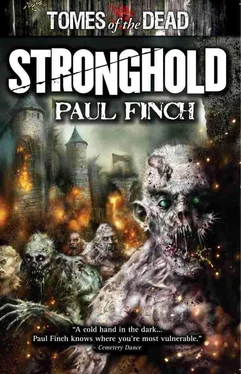

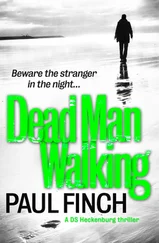
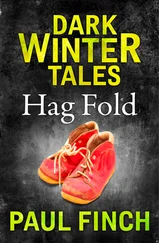
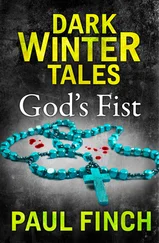


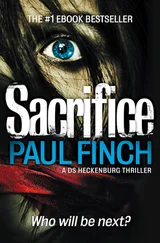

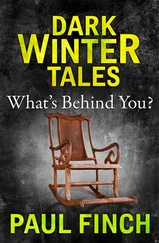

![Paul Finch - A Wanted Man [A PC Heckenburg Short Story]](/books/702381/paul-finch-a-wanted-man-a-pc-heckenburg-short-sto-thumb.webp)
